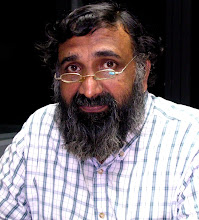What will be the kind of government people will have in different parts of the world after, say, thirty, forty or fifty years? I am sure there are people who believe that the capitalist system will become prevalent all over the world, becoming the predominant form of society. There will also be people who believe that socialism will spread to many countries in fifty years' time and continue to spread to other countries. There also are people who believe that there could be other forms of society that would develop in the coming decades.
One indication of the form that may soon evolve is the new modes of production witnessed in the development of Free Software. Here, people collaborate to create something with apparently no incentive. Well, there is the incentive of popularity, recognition and even fame that contribution to Free Software may bring. But not money, at least for a number of developers who are not employed by Free Software companies like Red Hat or SuSE or even companies that contribute to Free Software like Sun Microsystems.
But, if we take the case of Wikipedia, for instance, contribution to it brings you nothing. Not even the names of contributors are mentioned anywhere. Yet, millions of articles go written in more than 250 languages! This is simply stupendous! Unbelievable even a few years ago. And inexplicable from the point of view of any kind of economics. Does this indicate a new and evolving form of collaborative production? Can this kind of production be extended to other areas also? Can, in other words, a new form of economy come into existence where production is no longer centralised, controlled by a few people? Can there be an economy that needs no money?
While these may sound absurd to many people who cannot escape from the modes of thinking that we are familiar with in this money-based economy, there are many people who think that it could be possible. There are different groups in different parts of the world, such as the P2P Foundation established by Michel Bauwens and the Oekonux group established by Stefan Merten, who are seriously discussing such possibilities.
I had the good fortune to meet and interview Mr. Bauwens and Mr. Merten earlier this year. The interview with Mr. Bauwens has already appeared in Malayalam in the latest issue (July 17, 2009) of the magazine Samakalika Malayalam. The English version of the interview has appeared in Infochange India. The interview is under the Creative Commons Attribution No Derivatives India 2.5 (by-nd) licence. So it may be reproduced in any media provided this licence statement is also included. Just for your information, in case you would want to reproduce it somewhere :-)
Wednesday, July 15, 2009
Subscribe to:
Comments (Atom)
